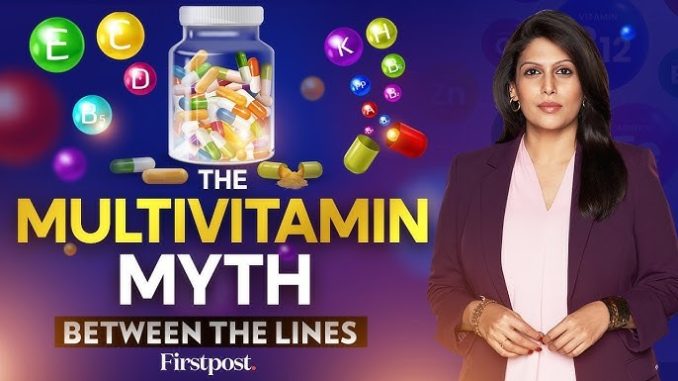
Walk down any pharmacy aisle or browse a wellness website, and you’ll find shelves full of multivitamins and supplements promising everything from stronger immunity to better focus and glowing skin. For decades, these products have been marketed as convenient shortcuts to better health, offering the reassurance that a daily pill can make up for whatever might be missing in your diet. But as with many things in health and nutrition, the reality is more complicated. Multivitamins and supplements can play a role, but they are not magic solutions, and their benefits depend heavily on context, individual needs, and how they are used.
The popularity of supplements stems in part from a simple idea: modern diets, often high in processed foods and low in fresh produce, may not provide all the nutrients the body needs. Multivitamins, with their neat blend of essential vitamins and minerals, seem like an easy fix. They promise to “fill the gaps” in nutrition, offering peace of mind to people who worry that they aren’t eating enough fruits, vegetables, or whole grains. In theory, this makes sense. Vitamins and minerals are crucial for countless bodily functions, from producing energy and supporting bone health to strengthening the immune system. However, in practice, things aren’t so straightforward.
Research has shown that for generally healthy people who eat a reasonably balanced diet, multivitamins often provide little measurable benefit. Large-scale studies have repeatedly failed to demonstrate that taking a daily multivitamin reduces the risk of chronic diseases like heart disease, cancer, or cognitive decline. This doesn’t mean they’re useless, but it does suggest that they are not the powerful shield against illness that marketing often implies. For many people, the real gains in health come less from what’s in a pill and more from what’s on their plate—fresh produce, lean proteins, and whole grains provide not just vitamins and minerals but also fiber and phytonutrients that supplements cannot replicate.
That said, supplements can be highly beneficial in specific situations. For instance, vitamin D is difficult to obtain in sufficient amounts through food alone, especially in regions with limited sunlight, and supplementation is often recommended. Pregnant women are advised to take folic acid to reduce the risk of birth defects, while older adults may benefit from B12 supplements due to declining absorption with age. People with diagnosed deficiencies or medical conditions that affect nutrient absorption also rely on supplements as part of their treatment. In these cases, supplements are less about optimization and more about necessity.
One of the challenges with supplements is that more is not always better. Unlike water or food, where the body generally signals when enough is enough, supplements can be deceptively easy to overconsume. Fat-soluble vitamins like A, D, E, and K, for example, can accumulate in the body at toxic levels if taken in excess. High doses of certain minerals, such as iron, can cause serious health issues when not medically necessary. The assumption that supplements are inherently safe because they are “natural” is misleading; in reality, they are concentrated substances that can have powerful effects on the body, both positive and negative.
Quality and regulation also complicate the picture. Unlike prescription drugs, supplements are not always subject to rigorous oversight before hitting the market. This means that labels may not always reflect what is inside, and potency can vary between brands. Independent testing has occasionally revealed supplements contaminated with unlisted ingredients, fillers, or even harmful substances. While reputable brands exist and many follow high manufacturing standards, consumers must be cautious and discerning. Choosing third-party tested products and consulting healthcare professionals before starting new supplements is often the safest approach.
Another factor is the psychological comfort supplements provide. For some, taking a multivitamin each morning becomes a ritual that reinforces the idea of taking care of themselves. This “health halo” effect, however, can lead to complacency. People may assume that because they take a daily pill, they don’t need to focus as much on diet, exercise, or sleep. Unfortunately, no supplement can counteract the long-term impact of poor lifestyle habits. The best outcomes occur when supplements are used as a complement to, not a replacement for, healthy choices.
It is also worth noting that the supplement industry is vast and lucrative, with billions of dollars spent annually. This commercial success drives aggressive marketing, often blurring the line between science and salesmanship. Buzzwords like “immune-boosting,” “detoxifying,” or “anti-aging” are frequently used to appeal to consumer anxieties, even when the underlying evidence is limited or inconclusive. Consumers must sift through the noise, relying on credible sources and evidence-based recommendations rather than glossy promises.
For businesses and professionals, the conversation around supplements reflects a larger truth about health strategies: shortcuts rarely deliver the same long-term results as steady, consistent practices. Just as in business, where sustainable growth depends on strong foundations rather than flashy one-off tactics, health depends on daily habits—balanced eating, movement, sleep, and stress management—rather than quick fixes. Supplements can be valuable tools, but they are most effective when used to support a solid foundation rather than replace it.
Ultimately, the truth about multivitamins and supplements is nuanced. They are neither miracle cures nor complete wastes of money. For some people, they are essential and life-changing; for others, they are unnecessary and offer little beyond psychological reassurance. The real key lies in context—understanding individual needs, consulting with professionals when necessary, and making informed choices rather than chasing trends. Supplements are best thought of as part of a broader health strategy, one that prioritizes sustainable lifestyle habits while recognizing that sometimes, a little extra support can make a meaningful difference.